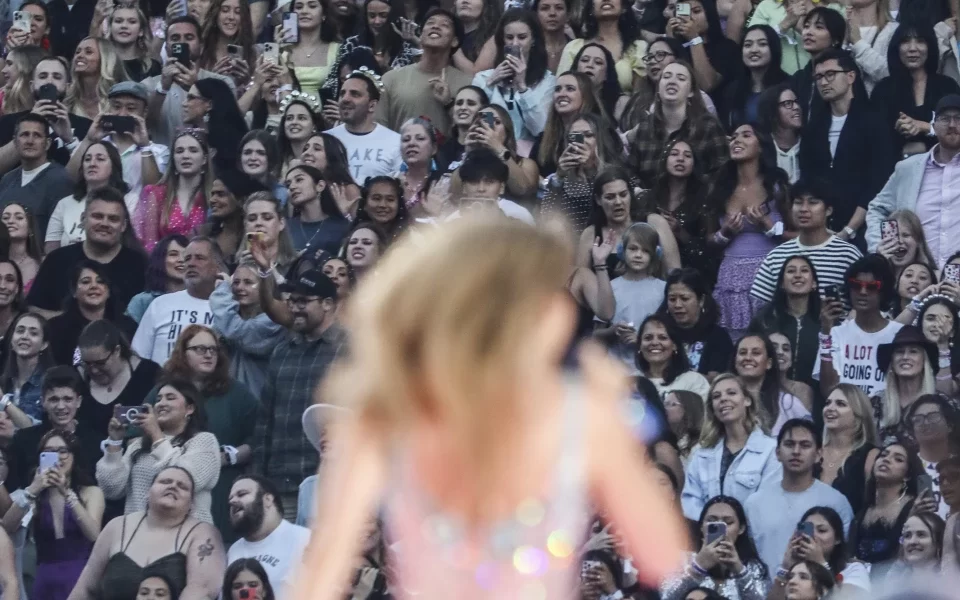Taylor Swift motivates 35,000 new voters to register by urging her Instagram followers to do the same
Taylor Swift posted a message to her Instagram story last September urging her then 277 million followers to vote. She included a direct link to the non-partisan, nonprofit website vote.org, which immediately garnered 35,000 new registered voters, according to the organization.
The post came at the end of the first North American leg of the Eras Tour. In the story post, Swift commented on the number of fans who had attended her shows.
“I’ve been so lucky to see so many of you guys at my U.S. shows recently,” Swift wrote. “I’ve heard you raise your voices, I know how powerful they are. Make sure you’re ready to use them in our elections this year!”
This is one of the most recent political statements made by the pop star.
According to an article published in Sage Journals by Simone Driessen, Swift’s status as a celebrity politician was established during her first public foray into political discourse in 2018, when she took to Instagram and asked her audience to lend support to Democratic candidates Phil Bredesen and Jim Cooper in her home state of Tennessee.
“In the past I’ve been reluctant to publicly voice my political opinions,” Swift said. “But due to several events in my life and in the world in the past two years, I feel very differently about that now.”
BYU’s own Ryan Davis, an associate professor of political science and self-proclaimed Swiftie who is currently teaching the maiden semester of BYU’s first-ever course on Taylor Swift, had some things to say about the potential for Swift’s political influence in America.
“People who participate in democracy in the United States are interested in responding to elite signals,” said Davis. “Elites might be people who occupy positions of cultural status, or people who occupy positions of political status.”
In his view, political divisions are decided by what certain political beliefs say about a person’s identity, not necessarily one’s true beliefs.
However, Davis believes Swift’s fanbase cuts across political divides. Having attended three of the Eras tour shows this past summer in three different U.S. cities, he was able to see firsthand the confluence of political alignments in the audiences there.
“If you’re at a Jason Aldean concert, that says something about your politics,” said Davis. “If you’re at a boygenius concert, that says something about your politics. But if you’re at a Taylor Swift concert, that doesn’t really say anything about your politics, and I think that’s kind of interesting.”
He explained the record-breaking phenomenon of the Eras Tour itself could only be made possible by pulling from many different parts of society.
Another assistant professor of political science at BYU, Lisa Argyle, said she doesn’t feel Taylor Swift’s influence poses a threat to democracy.
“Cults of personality become dangerous when people become so committed to the person that they are willing to toss out the other rules and norms that make up a fair and democratic system in favor of giving all of the power to that one individual,” said Argyle. “I don’t see any sign that Taylor Swift is seeking that kind of political power.”

